“It was a bright cold day in April, and the clocks were striking thirteen.” – George Orwell, 1984 (1949)
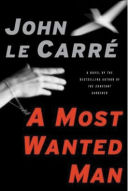 |
A Most Wanted Man, by John le Carré You know what you’re going to get with a John le Carré novel, much as you know what you’re going to get with an Elmore Leonard novel . . . an exemplar of a certain kind of story-telling craft, almost always masterfully done (which is not to say any individual novel will turn out to be the best thing you’ve ever read, but it will satisfy you). JLC’s spy stories have always been deeply cynical; this one is cynical indeed, an almost farcical sendup of the British-American post-9/11 terrorist suspect rendition scheme. You see disaster coming a long way off, but you keep reading, because the story is so well told. JLC could probably write a Clive Cussler novel and I’d read it! |
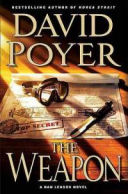 |
The Weapon, by David Poyer I’ve always enjoyed David Poyer’s novels and was looking forward to this one. I’m disappointed. The Weapon seems hastily written, more of a potboiler than previous Dan Lenson adventures . . . it almost reads as a serial, with cliffhangers at the end of every other chapter. Promising subplots (Lenson’s relationship with his politically-connected wife, his promotion status & future with the US Navy, the menacing SEAL who’s begging to turn out to be some sort of bad guy, etc) are introduced but then dropped, leaving you wondering why Poyer didn’t follow through. Earlier Poyer novels were much better than The Weapon . . . don’t waste your time on this one. |
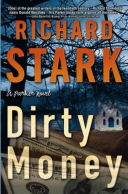 |
Nobody Runs Forever & Dirty Money, by Richard Stark A friend turned me on to the Richard Stark novels, written by Donald Westlake under a pen name. Nobody Runs Forever and Dirty money are two novels that tell a single story about a bank robbery, the crooks who pull it off, and the cops who go after them. These are straight crime/detective novels, quite unlike the comedic crime stories Westlake wrote under his real name. Richard Stark novels are spare: short, pared to the bone, simply told . . . and they’re damn good stories for it. I will certainly read more. |
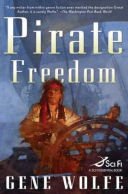 |
Pirate Freedom, by Gene Wolfe Gene Wolfe’s reputation is overblown. I loved The Fifth Head of Cerberus and enjoyed the collection of short stories in The Island of Doctor Death. His longer stuff, though, always put me off: even when disguised as science fiction, it’s really fantasy, Dungeons & Dragons stuff written for an audience of socially maladapt teenagers. I don’t know how to classify Pirate Freedom. Time-travel fantasy? Whatever, I threw the book across the room halfway through, when Wolfe gave up on storytelling and simply had his time-traveling priest/pirate sit on his ass and lecture the reader — over the course of 20 or more pages — through a complicated turn of events that was at the center of the story. Wolfe is a charlatan; I’ll read no more of him. |
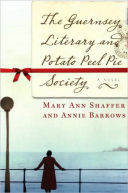 |
The Guernsey Literary and Potato Peel Pie Society, by Mary Ann Schaffer and Annie Barrows A friend of mine was pooh-poohing this one because, she said, it was a romance novel in disguise. I didn’t think it was disguised at all — you could see the romantic denouement coming from a mile away. And maybe I was ready for some romance, because I thought this was a perfect little novel, full of life, history, memorable characters, fascinating digressions, great happiness (and great sadness), and a wonderful sense of place. I read it, save for a few hours of badly-needed sleep, in one sitting, and was sorry when it was over. Look, just because Oprah recommends a book doesn’t mean it’s bad . . . in any case, I recommend it too, and that definitely means it’s good! |
| Sister Bernadette’s Barking Dog: The Quirky History and Lost Art of Diagramming Sentences, by Kitty Burns Florey C’mon, indulge your inner grammarian . . . you know you want to. This book is exactly what it purports to be: a guide to diagramming sentences. No more, no less, and actually pretty technical. A book you’ll want to keep on your reading table to dip into from time to time, not one to try to digest in one sitting. |